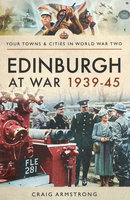New, Quality Gift Books - 50-90% off - over 2500 titles
Your basket is empty.
Categories Last Chance to buy! AROUND SCOTLAND'S SHORES: Victorians & Edwardians in Colour
AROUND SCOTLAND'S SHORES: Victorians & Edwardians in Colour
Book number: 94333
Product format: Paperback
In stock
Bibliophile price
£6.00
Published price
£9.99
Customers who bought this product also bought
|
EDINBURGH AT WAR 1939-1945
Book number: 93220
Product format: Paperback
Bibliophile price
£2.75
Published price
£14.99
|
BOOKS DO FURNISH A PAINTING
Book number: 92341
Product format: Hardback
Bibliophile price
£12.00
Published price
£24.95
|
DIE OF SHAME
Book number: 92560
Product format: Hardback
Bibliophile price
£4.00
Published price
£18.99
|
|
OBSERVANT WALKER
Book number: 95432
Product format: Hardback
Bibliophile price
£7.00
Published price
£20
|
MARGARET MACDONALD MACKINTOSH THE DEW FOILED JOURNAL
Book number: 95230
Product format: Hardback
Bibliophile price
£7.50
Published price
£9.99
|
EGYPTIAN TRAVEL ANTHOLOGIES: Set of Three
Book number: 95151
Product format: Hardback
Bibliophile price
£10.00
Published price
£35.97
|
Browse these categories as well: Last Chance to buy!, Great Britain, Maps & the Environment, Scottish Books, Travel & Places











